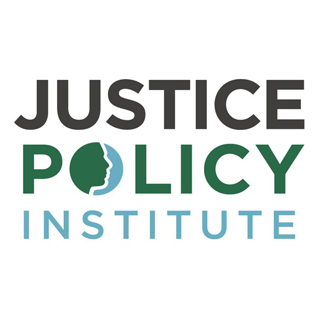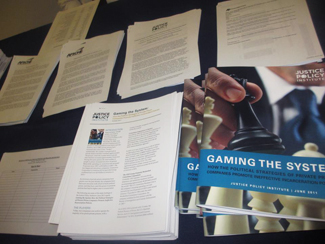
Marc Schindler has worked “outside” the justice system as a litigator and advocate, but also in the trenches of a juvenile justice agency, having helped downsize an entire system. In an interview with JJIE, Schindler said he hopes to bring both of these perspectives, but particularly his “on the ground” experience, to the Justice Policy Institute when he becomes its new executive director in August.
JPI, a Washington, D.C.-based nonprofit organization, works to reduce the use of incarceration in the criminal and juvenile justice system. Founded 15 years ago, JPI used to be the policy arm of the San Francisco-based Center on Juvenile and Criminal Justice and today focuses on informing policymakers and practitioners about crime rates, best practices and other issues impacting young people involved in the justice system, said Schindler.
“It’s a critical time for the juvenile justice field,” said Schindler. In the last few years, after decades of increasing incarceration rates, those numbers are starting to drop, he said. Schindler attributed this to a combination of major efforts, such as the Juvenile Detention Alternatives Initiative, new research on what works, leadership in several states and budget pressures.
 With numerous states facing budget cuts, many have started to “focus on the types of offenses that really merit confinement,” said Schindler, and seek out successful alternatives to incarceration. And through reforming their systems, he added, states have learned they can be smart on crime without appearing to be weak.
With numerous states facing budget cuts, many have started to “focus on the types of offenses that really merit confinement,” said Schindler, and seek out successful alternatives to incarceration. And through reforming their systems, he added, states have learned they can be smart on crime without appearing to be weak.
Schindler is also committed to ensuring JPI partners with sectors that have not traditionally been a part of the justice conversation. Bringing the workforce development, education reform and business communities to the table, he said, will help create valuable resources for the field and create dialogues across systems both nationally and locally.

And while one of JPI’s primary focuses is incarceration, he also highlighted the “school to prison pipeline” and disproportionate minority contact as critical areas in the juvenile justice field today. What JPI hopes to do, he said, is shine a light on these issues and put out the best and most useful information on these topics.
“Sunlight is the best way to expose what is going on in a system,” he said. So, before effective policies can be addressed, stakeholders must understand what the problems are, he added. And under his leadership, Schindler expects JPI will continue to point out the problems and point stakeholders toward the most effective solutions.
Photo credits, from the top: Marc Schindler (Silvia Johnson Photography / JPI), Justice Policy Institute Logo (JPI), JPI’s report “Gaming the System” on display at a Congressional hearing on Capitol Hill in Washington, D.C. in 2012 (JPI).






























